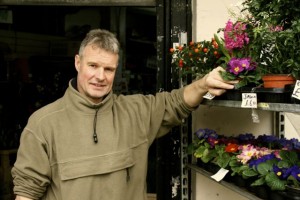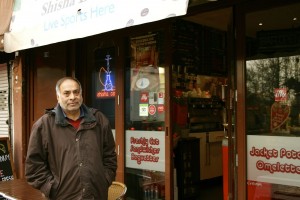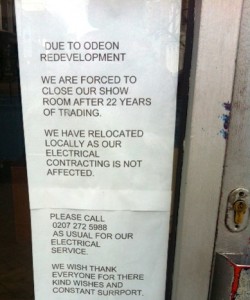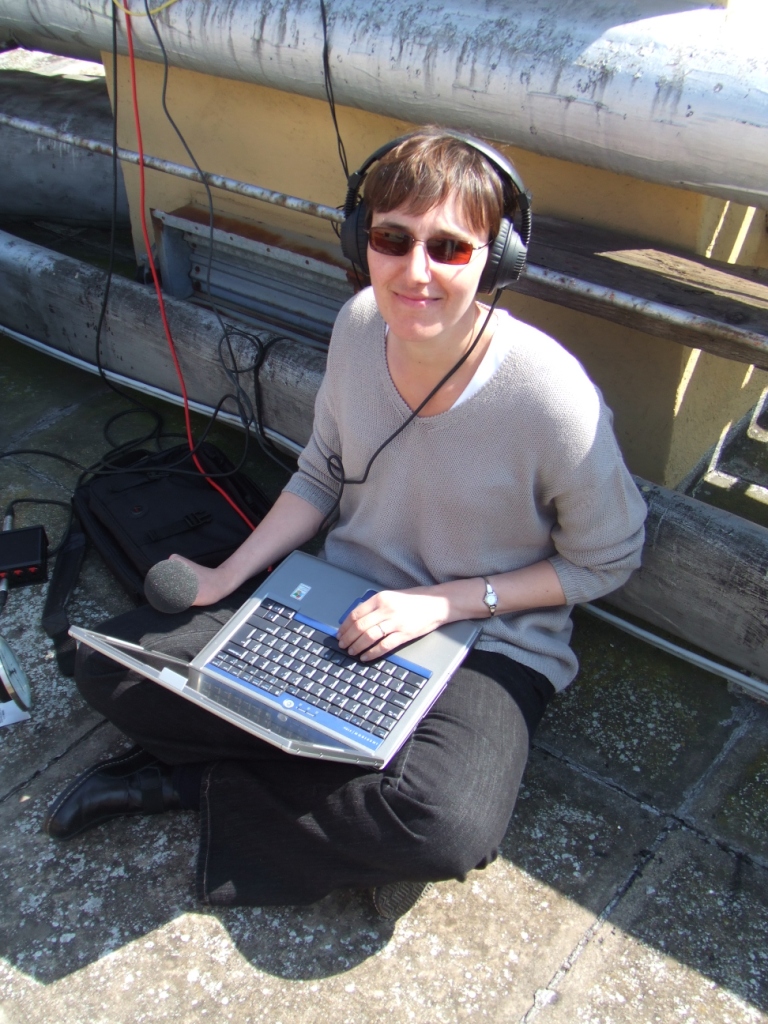![photo 2[1]](http://clairebolderson.com/wp-content/uploads/2015/03/photo-21-300x224.jpg) Mr Patel closed his newsagents a few months ago. Shortly after that, the 75 year old hardware business further up the road shut its doors. Its neighbour, once a bathroom and kitchen design shop is now a giant pound store.
Mr Patel closed his newsagents a few months ago. Shortly after that, the 75 year old hardware business further up the road shut its doors. Its neighbour, once a bathroom and kitchen design shop is now a giant pound store.
Yesterday Impulse Flowers, a local fixture for the past 28 years, lowered the shutters for the last time. The electric lighting show room across the road from the florist had already gone – due to “redevelopment” says the notice stuck on its window.
Next door, the manager of its sister store, selling light bulbs of every shape and size, stands in the doorway and surveys the changes on Holloway Road. “Look at it,” she says, pointing to a building once occupied by a fabric and wool shop. “It’s all restaurants and cafes now.”
And small supermarkets, some of them mini-versions of the big chains. Rumour has it, that’s what’s moving in where the light-bulb lady now stands. Or maybe it’ll be another branch of Costa, the ubiquitous coffee chain that already has at least three outlets on Holloway Road.
It’s not that the owners of the older shops want to go. “I think it’s more to do with landlords, their price increases,” says Frank, owner of Impulse Flowers, who’s finally off after losing a battle against yet another big rent hike. “They feel they need to modernise and they want to get trendy coffee shops and supermarkets in the high street.”

Frank says the rot set in when a supermarket chain opened a small, local store in the neighbourhood. The chain was happy to pay what he calls, “an enormous amount” in rent. Now, the landlords are telling the little guys they should pay the same, “and we’re just not in a position to do so,” Frank says. “We can’t compete.”
(It turns out, the supermarket chains might not be able to either. According to a recent report, it’s charity shops followed by coffee chains that are filling in the holes in the high street. When the holes are filled that is.)
Of course, one could argue (as former Tesco boss Sir Terry Leahy did) that all this represents progress. Consumers are buying cheaper goods at places that are more convenient to them.
But the changes have a much wider impact – and not just on the individuals now shutting up shop. An entire community of businesses within five minutes walk from my home is being wiped out.
“It’s a bit quiet,” says Tim at the barbershop he’s run for the past 16 years. Tim’s a refugee from Kosovo who says he was made to feel welcome in the area as soon he arrived. Business was good at the beginning he says. Now though, it’s much harder “because circumstances change on Holloway Road.”
Tim’s referring to closings all around him. “The small businesses here, we used to go to them and buy things,” he says, “and they’d come for a haircut here.”
But don’t workers at supermarkets and coffee shops need haircuts too? Tim shakes his head. It’s different he says. “We don’t know them. They’re very rare customers.”

“It’s bad for the local community,” says Mr Patel, who’s stopped by Tim’s – not for a haircut but just for a chat, proving the barber’s point about the relationships between the small businesses in the area.
Mr Patel’s newsagents did well when he opened it in 1976. In recent years though, “the time and effort we put in, the returns just weren’t there,” he says.
“It was like a community shop,” Mr Patel goes on, explaining why, at any time of day one could find locals leaning on the counter chatting to the newsagent or his wife. “People were coming in for help and the whole family was there to provide it,” says the former shopkeeper. But with rapidly rising rents and high business rates, it couldn’t last. The newsagents closed – though Mr Patel hung on to the café next door.
That small high street businesses are suffering is well known. In the first half of last year, shops in the UK closed at a staggering 16 per day. Bad for them of course. But what isn’t talked about enough is the impact this has on a sense of community that affects all of us.
I want to live near a road where the Ugandan Asian former newsagent drops in to chat to the Kosovan barber who’s cutting the hair of a young man who works in the DIY store across the road. I like the fact the Dutch-born flower seller with whom I discuss politics and Arsenal, knows exactly what’s going on with the light-bulb lady and the other shops in her parade.
This is our community but it’s falling apart and there doesn’t seem to be anything anyone can do to stop it. Islington Council has a Core Strategy which sets out its “strategic vision for the borough up to 2025”.
Published in 2011, it says the aim is to “promote a mix of retail opportunities” on the main roads of the area and “to provide a better range of shops.” Nice idea but it’s not happening. (Some of the dying businesses say the council’s own parking enforcements share part of the blame). In fact, it’s the opposite and as with so many other high streets in the UK, our wonderfully diverse, friendly, connected neighbourhood is disappearing before our eyes.

Closing shops on the #highstreet isn’t just bad for them, it’s destroying our sense of community http://t.co/kP08wRV98q #Hollowayroad
What the demise of the #highstreet does to a sense of community. A story from #hollowayroad http://t.co/kP08wRV98q @IslingtonBC
#highstreet shops are disappearing fast says #PwC. Here’s a story of what that means on 1 major road http://t.co/kP08wRV98q @LocalDataCo